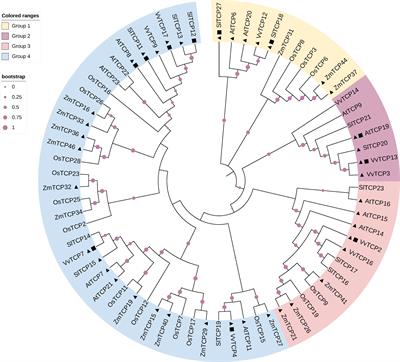Class I TCP in fruit development: much more than growth
Fruit development can be viewed as the succession of three main steps consisting of the fruit initiation, growth and ripening.

These processes are orchestrated by different factors, notably the successful fertilization of flowers, the environmental conditions and the hormones whose action is coordinated by a large variety of transcription factors. Among the different transcription factor families, TEOSINTE BRANCHED 1, CYCLOIDEA, PROLIFERATING CELL FACTOR (TCP) family has received little attention in the frame of fruit biology despite its large effects on several developmental processes and its action as modulator of different hormonal pathways. In this respect, the comprehension of TCP functions in fruit development remains an incomplete puzzle that needs to be assembled. Building on the abundance of genomic and transcriptomic data, this review aims at collecting available TCP expression data to allow their integration in the light of the different functional genetic studies reported so far. This reveals that several Class I TCP genes, already known for their involvement in the cell proliferation and growth, display significant expression levels in developing fruit, although clear evidence supporting their functional significance in this process remains scarce.
The extensive expression data compiled in our study provide convincing elements that shed light on the specific involvement of Class I TCP genes in fruit ripening, once these reproductive organs acquire their mature size.
They also emphasize their putative role in the control of specific biological processes such as fruit metabolism and hormonal dialogue.
Read the full article at the original website
References:
